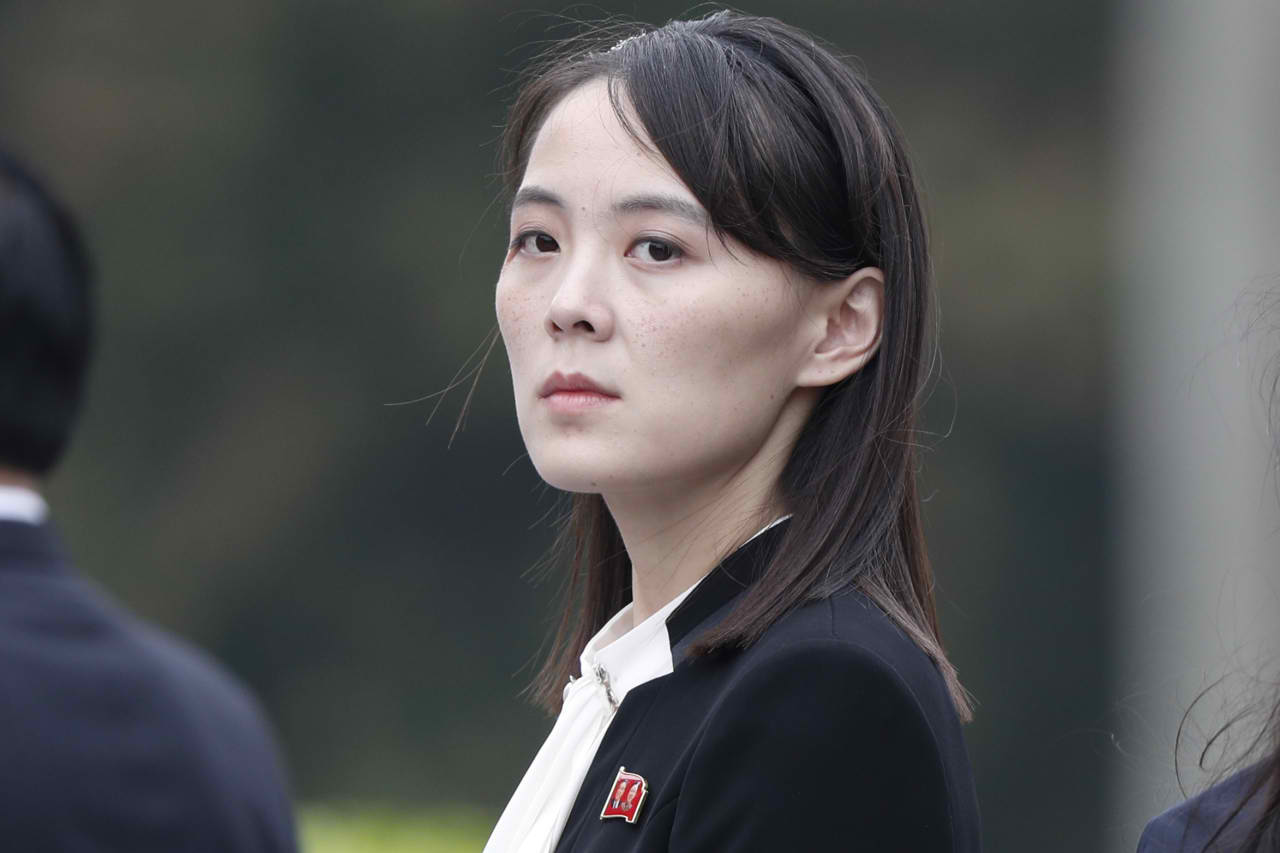SEOUL — Giving Kim Yo-jong — sister of North Korean leader Kim Jong-un — the lead in raising tension with the South is a move with several implications, experts say.
Pyongyang has been raising tensions with Seoul in recent days, blowing up the inter-Korean liaison office and warning of reestablishing military presence in Kaesong industrial park and Kumgangsan resort. Such moves could set inter-Korean relations back by two decades.
While North Korea’s actions, and warnings, have far-reaching implications, its leader has remained mostly removed from the developments, with his sister leading the charge instead.
“There are two implications. One is that Kim Jong-un is fault-free, but what would North Koreans think when the situation has come to this, when he led inter-Korean relations? So, the responsibility has to be put on Kim Yo-jong,” said Shin Jong-woo, a senior analyst at the Korea Defense and Security Forum, referring to the propaganda created around North Korea’s leader.
“Second is that (by putting Kim Yo-jong in the lead) they are lowering us. Saying, if you want, try to figure it out with her (not the supreme leader).”
Others, however, say that Kim Yo-jong’s high status within the regime is being reinforced by giving her the reins.
“It’s raising Kim Yo-jong’s status. Traditionally, North Korea doesn’t recognize a No. 2 but under the Kim Jong-un regime, her status has been raised in an exceptional move,” said Shin Beom-chul, director of the Center for Diplomacy and Security at the Korea Research Institute for National Strategy.
He said that while Kim Yo-jong’s status as “No. 2” cannot be considered as being official due to her lack of a military title, Kim Jong-un’s intention to give her a higher status appears to be clear.
The public and rapid way in which the North is issuing threats and following through on them could be taken as Kim Yo-jong proving herself on the global stage. Starting with berating Seoul over propaganda leaflets on June 4, the North has moved quickly, cutting off communications, demolishing the liaison office and revealing plans for increasing military presence near the border in a span of 13 days. Each action was preceded by warnings in statements issued by Kim Yo-jong or other ranking officials.
In its past dealings with the South, the North showed a tendency of acting first, and keeping its decision-making process hidden. In contrast, Pyongyang has made a number of public statements that included details such as the military submitting plans to the Workers’ Party of Korea for approval.
“By taking such a bold action Kim Yo-jong is showing that she can act aggressively, decisively and boldly. She is making a statement that she is not to be toyed with, going over the top to inspire fear,” said Harry Kazianis, senior director of the Korean Studies at the Washington-based Center for the National Interest.
